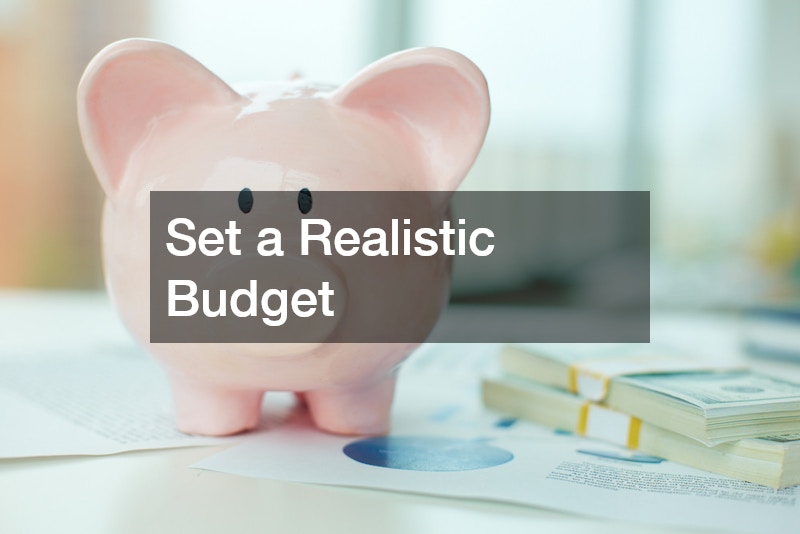Finding the perfect apartment can be an exciting yet challenging process. Whether you’re moving to a new city, upgrading your living space, or searching for a rental that fits your specific needs, the search for the finest apartment requires careful planning, patience, and a clear understanding of your priorities. From location and amenities to budget and lease terms, there are several factors to consider when hunting for an apartment that checks all the boxes. Here are key steps to guide you in your search for the finest apartments.
1. Set a Realistic Budget
Before you begin your search for the finest apartments, it’s essential to establish a clear budget. Knowing how much you can afford each month will help narrow down your options and avoid wasting time on apartments that are out of your price range.
Consider All Expenses: When setting your budget, remember to factor in additional costs beyond rent. These can include utilities (water, electricity, internet), parking fees, renters’ insurance, and any maintenance fees. It’s a good idea to allocate no more than 30% of your monthly income to housing costs, though this can vary based on your personal financial situation.
Account for Future Changes: Be mindful of any potential changes in your income or personal circumstances that might affect your ability to afford rent. It’s better to select an apartment that fits within a comfortably manageable budget, leaving room for other financial priorities.
2. Determine Your Desired Location
Location is one of the most crucial factors when selecting an apartment. A great apartment in a less desirable neighborhood can significantly affect your overall experience. To find the finest apartment for your lifestyle, consider the following aspects of location:
Proximity to Work or School: One of the biggest daily considerations is your commute. Choose an apartment that’s within reasonable distance from your job or educational institution. This will save you time and money on transportation, making your day-to-day life more manageable.
Neighborhood Amenities: Look for an apartment in a neighborhood that offers the amenities you need, such as grocery stores, restaurants, public transport, parks, or gyms. The best apartments are typically in walkable, safe neighborhoods with easy access to essential services.
Safety and Security: Research the safety of the area before making your decision. You can check online crime maps, visit the neighborhood at different times of day, and ask current residents about their experiences. A secure environment can give you peace of mind, whether you’re home alone or with family.
Future Development: Consider whether the neighborhood is undergoing any major construction or development projects. While revitalized areas may increase property values, ongoing projects could bring noise and inconvenience.
3. Consider the Type and Size of the Apartment
The size and layout of the apartment should match your lifestyle. Think about your living needs now and in the near future, and choose an apartment type that works for you.
Studio vs. One-Bedroom vs. Larger Units: If you’re living alone or in a smaller household, a studio or one-bedroom apartment may be sufficient. However, if you have a growing family or plan to entertain guests regularly, you may need a two-bedroom or larger unit. Consider the layout—open spaces might be more appealing for entertaining, while separate rooms may provide more privacy.
Storage Space: Look for apartments with ample storage. This can include closet space, cabinets, and potentially additional storage units on the property. Extra storage can be a huge benefit if you have belongings that need to be kept out of sight.
Amenities: Determine which amenities are essential to your living experience. Some fine apartments come with luxurious features like a private balcony, in-unit washer/dryer, walk-in closets, or large windows that let in natural light. Take note of the apartment’s overall design and whether it matches your aesthetic preferences.
4. Research Building and Apartment Conditions
When evaluating potential apartments, the condition of the building and the unit itself should be a top priority. Even if the location and amenities are ideal, the quality of the space will have a significant impact on your comfort and satisfaction.
Inspect the Property: Visit the apartment in person, and do a thorough inspection. Check for any signs of wear and tear, such as cracks in the walls, stains, broken fixtures, or malfunctioning appliances. Also, assess the building’s condition by looking at common areas like hallways, elevators, and entrances to ensure they are well-maintained.
Check for Noise: Noise levels can vary greatly depending on the apartment’s location in the building. Test how noisy the apartment is during your visit, paying attention to potential sounds from neighbors, traffic, or construction. Some apartments offer noise-reducing features like thick walls or double-glazed windows to combat outside noise.
Maintenance and Repairs: A reputable building should offer quick and efficient maintenance services. Ensure that the landlord or property management company has a clear process for handling repair requests. If possible, ask other tenants about their experiences with maintenance and repairs.
5. Understand Lease Terms and Policies
The lease agreement is a critical part of the apartment search process. To find the finest apartment, make sure you understand the lease terms and the policies in place before signing anything.
Lease Length: Most apartments offer leases ranging from six months to a year, with some offering flexibility for shorter or longer terms. Choose a lease length that aligns with your plans, whether you’re looking for something temporary or a more permanent living arrangement.
Pet Policies: If you have pets or plan to get one, be sure to ask about pet policies. Some buildings are pet-friendly, while others may have restrictions or charge pet rent. Make sure to choose a place where your pet will be welcome.
Rent Increases: Clarify whether the landlord plans to increase rent after your lease expires and by how much. This can help you anticipate any future cost changes and prevent unpleasant surprises.
Watch the video above to learn more about finding the finest apartments!
.






